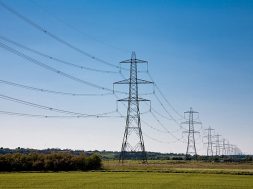
Colombia Facilitates Indigenous and Minority Collaboration in Renewable Energy – EQ
In Short : Colombia is facilitating collaboration with indigenous and minority communities in the renewable energy sector. This initiative emphasizes inclusivity and engagement with local communities, ensuring their active participation in and benefit from the development of renewable energy projects within the country.
In Detail : Colombia’s energy ministry has announced a progressive move, allowing Indigenous, rural, and minority communities to initiate renewable energy generator and commercialization projects, fostering joint ventures with both private companies and the public sector. This strategic step aligns with President Gustavo Petro’s commitment to shift Colombia’s energy landscape away from reliance on oil and coal towards the integration of renewables, such as solar and wind. However, the development of such projects has faced obstacles, including environmental licensing delays and opposition from certain Indigenous Wayuu communities in the La Guajira province, where many projects are planned.
President Petro’s vision to transition Colombia towards renewable energy signifies a departure from traditional fossil fuel production. Despite this ambitious agenda, hurdles in the form of environmental licensing delays and opposition from specific Indigenous communities have impeded progress. La Guajira province, a coastal region pivotal for several planned projects, has experienced determined opposition, particularly from Indigenous Wayuu communities.
Presently, approximately 70% of Colombia’s energy is derived from hydroelectric projects, while renewables, excluding hydro, contribute less than 1%. Notably, oil and coal stand as the country’s primary exports. The recent decree, signed on Friday and disclosed by the energy ministry on Tuesday, offers a groundbreaking opportunity for various groups, including rural farmers, Indigenous, and Afro-Colombian communities, to actively participate in renewable energy endeavors.
Under the new decree, participating groups can harness renewable energy sources or utilize renewable fuels for energy generation. Crucially, the decree outlines that “energy communities or associations of energy communities can associate with third parties from the public, private, or community sector.” This inclusive approach encourages collaboration between diverse stakeholders, fostering a more comprehensive and equitable energy landscape.
The eligibility criteria extend to rural farmers and Indigenous and Afro-Colombian communities, emphasizing the inclusion of marginalized groups. Importantly, the decree advocates for communities to prioritize meeting their own energy needs through these projects. Once self-sufficiency is achieved, surplus energy can be directed towards the national grid or exported, contributing to the broader energy infrastructure.
Colombia has witnessed the announcement of more than 50 potential wind and solar projects since 2019, with a planned generation capacity of approximately 2.43 gigawatts in wind energy and 0.1 gigawatts in solar. Despite these ambitious plans, none of these projects are operational to date. Delays have been attributed to various factors, including environmental considerations and local opposition.
Companies involved in these projects have faced challenges, with some, such as Italy’s Enel (ENEI.MI), indefinitely delaying initiatives, citing local protests as a significant hindrance to substantial investments. The complex dynamics of navigating local sentiments and ensuring community buy-in remain integral to the success of renewable energy projects in the region.
In a notable development, Colombia recently initiated its inaugural bidding round for offshore wind concessions, signaling a commitment to diversifying the renewable energy portfolio. This step aligns with global trends toward harnessing offshore wind resources for sustainable energy production.
Colombia’s decision to empower Indigenous, rural, and minority communities in renewable energy initiatives is a commendable and forward-thinking approach. By fostering collaboration and inclusivity, the country aims to overcome challenges and propel its renewable energy sector forward. The success of these endeavors will not only contribute to Colombia’s energy transition goals but also set a precedent for inclusive and sustainable energy development worldwide.













